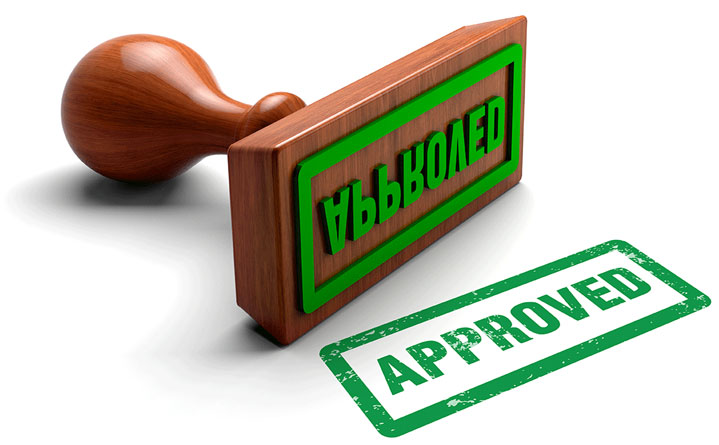
Sinovac Sinopharm To Supply 500M Vaccine Doses To COVAX 2 Approvals For Seagen-Astellas Padcev
July 19,2021 02:36 PM
- By AdminChinese vaccine producers Sinovac and Sinopharm will supply up to 500 million doses of the COVID-19 vaccine to the COVAX worldwide relief effort. Japan-based Astellas and partner Seagen scored two FDA approvals on one day for their bladder cancer treatment Padcev. According to Reuters, BGI Group and the Chinese military have shared data on millions of pregnant women who have used BGI's genetic test.
1. China’s Sinovac, Sinopharm ink COVAX supply deal for up to 550M coronavirus vaccine doses
With the worldwide COVID-19 vaccine-sharing effort COVAX struggling to provide poorer nations with shots, Chinese drugmakers Sinovac and Sinopharm are providing a boost with a deal for 550 billion doses. Both shots are approved by the World Health Organization and are ready for immediate delivery. Sinovac will supply 380 million doses while Sinopharm’s agreement covers 170 million shots.
Japan's Astellas and partner Seagen won a pair of approvals for their rising star cancer drug Padcev. One nod came in third-line metastatic or locally advanced bladder cancer, converting a previous conditional approval to full status. The second endorsement came for the antibody-drug conjugate’s use as a second-line therapy for adults who are eligible for cisplatin-based chemotherapy.
Genomic sequencing giant BGI Group, which developed its popular prenatal test in partnership with the Chinese military, is sharing the data from millions of pregnant women around the world with military researchers, according to a report from Reuters. The test, which is available in more than 50 countries but not the U.S., is used to reveal genetic information and conditions like Down syndrome.
Takeda revealed data from a long-term study of its hereditary angioedema (HAE) drug Takhzyro, showing efficacy and safety consistent with the original phase 3 trial. The new data extend to 2.5 years. In the HAE market, Takeda expects to soon deal with a challenge from BioCryst’s Orladeyo, recently approved as the first oral treatment for the disorder.
5. China’s Adlai Nortye nabs another cool $100M for its immuno-oncology pipeline
Fueled by a $100 million investment from SDIC Capital and Tigermed, Chinese biopharma Adlai Nortye is set for a phase 3 clinical trial of buparlisib, an oral P13K inhibitor the company is testing against head and neck squamous cell carcinoma. The infusion of funds matches the $100 million it acquired in a series C round last August. The company has nine other immuno-oncology candidates.
After shutting down a phase 3 trial of Brii Biosciences’ COVID-19 therapy for futility, the National Institutes of Health has given it a green light to continue. The difference? In March, the combo antibody drug was deemed ineffective in hospitalized patients, but now an independent data monitoring board wants to see how it fares against those in outpatient care.
7. Biogen taps Chinese biotech InnoCare in $125M midstage MS drug pact
In search of a new multiple sclerosis drug to soften the blow of an impending patent cliff, Biogen has paid $125 million to team with Beijing-based InnoCare on orelabrutinib, an oral, small-molecule Bruton’s tyrosine kinase inhibitor. Biogen is facing the loss of exclusivity for Tysabri, Tecfidera and Vumerity. The drug is in phase 2 testing for relapsing-remitting MS.
8. I-Mab boards popular mRNAtrain with 2 biotech collaborations
I-Mab jumped into the mRNA innovation space with a collaboration with Chinese biotech Immoma, accessing the Chinese biotech’s self-replication mRNA platform to develop cancer-fighting antibody drugs. I-Mab also signed a deal with neoX Biotech to combine their efforts on 10 novel biologic programs for cancer treatments using an artificial intelligence discovery platform.
9. PAQ Therapeutics emerges with $30M Series A for autophagy-based treatments
PAQ Therapeutics of Massachusetts, whose founding technology originated from the work of Boxun Lu of Fudan University in Shanghai, unveiled a $30 million series A investment to take on autophagy-based dependent degradation. Another round of financing will be required before PAQ can enter the clinic, said CEO Nan Ji, Ph.D.
10. ACB hires Liu from Eureka Therapeutics to lead push into clinic
As Anticancer Bioscience looks to bring promising programs to market, it has hired Hong Liu as its new VP of clinical development. Liu comes from Eureka Therapeutics, where in his role as R&D chief he took multiple candidates from discovery to the clinic. ACB is commercializing discoveries from California’s J. Michael Bishop Institute of Cancer Research.